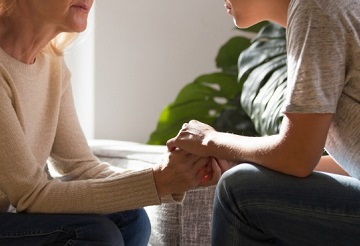


The dangers of 'fitspiration' on social media, encouraging eating disorders
A Priory expert has warned about the influence of 'fitspiration' posts on social media, as he urges people to be alert to the signs of eating disorders.
Dr Murali Sekar, Consultant Psychiatrist in Eating Disorders, spoke after research suggested that 'fitspiration' Instagram posts risked fuelling eating disorders, such as anorexia and bulimia nervosa among people who posted or followed them.
Dr Sekar said he was alarmed at the impact that 'being thin' messages, channelled through TV and social media, were having on people.
He said that many of his patients were "influenced heavily" by them, worsening their already vulnerable condition.
The link between 'fitspiration' images and potentially harmful eating disorder behaviours
Research in the International Journal of Eating Disorders, carried out by the University of Adelaide, Australia, compared 100 women who regularly posted 'fitspiration' images, and another 100 women who regularly shared images of travel. The two groups had a similar body mass index (BMI).
"Women who post 'fitspiration' images on Instagram are more likely to engage in eating and exercise behaviours that are potentially harmful to their physical and mental health" the authors wrote. "Of particular concern is the finding that almost a fifth of the women who post 'fitspiration' were at risk of a clinically significant eating disorder.
"It seems likely, at least for some women, that even though they may present as fit and healthy, regularly posting 'fitspiration' is a culturally sanctioned way of rationalising dietary restriction, disordered eating and over-exercising."
Dr Sekar said that while the internet could be helpful in sourcing help for eating disorders, from the NHS for example, and eating disorders were a complex issue, social media was of potential harm to people who followed it, and could cause damage to those vulnerable to eating disorders.
The 'fitspiration' hashtag frequently appears alongside images and videos of women and men working out in the gym, consuming healthy food, or displaying their physiques.
Spot the warning signs of an eating disorder
As part of Priory's campaign to raise awareness, Dr Sekar - who is based at Priory Hospital Chelmsford - explained how to spot the warning signs that someone may have an eating disorder, and provided guidance on how to understand the condition and receive appropriate treatment.
Dr Sekar said: "Eating disorders can strike anyone at any time. A majority have their onset around the time of puberty, since this is when the body goes through a significant amount of change both in shape and weight, but symptoms can start at any age."
There are a number of early signs of an eating disorder, he says:
"They could range from excessive preoccupation with body image, weight or shape, and discrepancy between self-perception about your weight compared to others. Usually this would be the person thinking he/she is too big whereas others are shocked by how thin they are.
"For example, some eating disorder patients misunderstand the government's anti-obesity information. They take this information and reduce their intake further when they are already too thin.
"In bulimia, the sign could be a constant urge to eat, which usually becomes uncontrollable once the eating started. This might be sporadic to start with, and then becomes a regular happening. A constant urge to exercise could also be the warning sign."
Early treatment is vital, he said.
Advice about treatment for eating disorders
If you're a parent, spouse or partner of someone who has, or you suspect has, an eating disorder, Dr Sekar advises:
- Be flexible. A fixed approach doesn't help. If he/she needs a hug, give it. Another time, if he/she asks you to stay away during a particularly difficult meal, do so. Be receptive and adaptable to their circumstances and needs
- Be honest. Tell them what you really think. Even though they may not like it, he/she will appreciate your honesty when they've recovered
- Don't hesitate to ask others for help. Understand they may fear professional treatment. He/she may worry that the treatment will make them overweight. You have to be rational and assist them to seek help
- Encourage early eating disorder treatment. Remember, the earlier the treatment, the better the outcome
Be aware of the role of the social media. There are a lot of unhelpful and dangerous pro-anorexia and pro-bulimia websites that you need to avoid.



